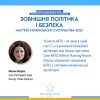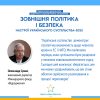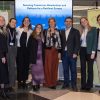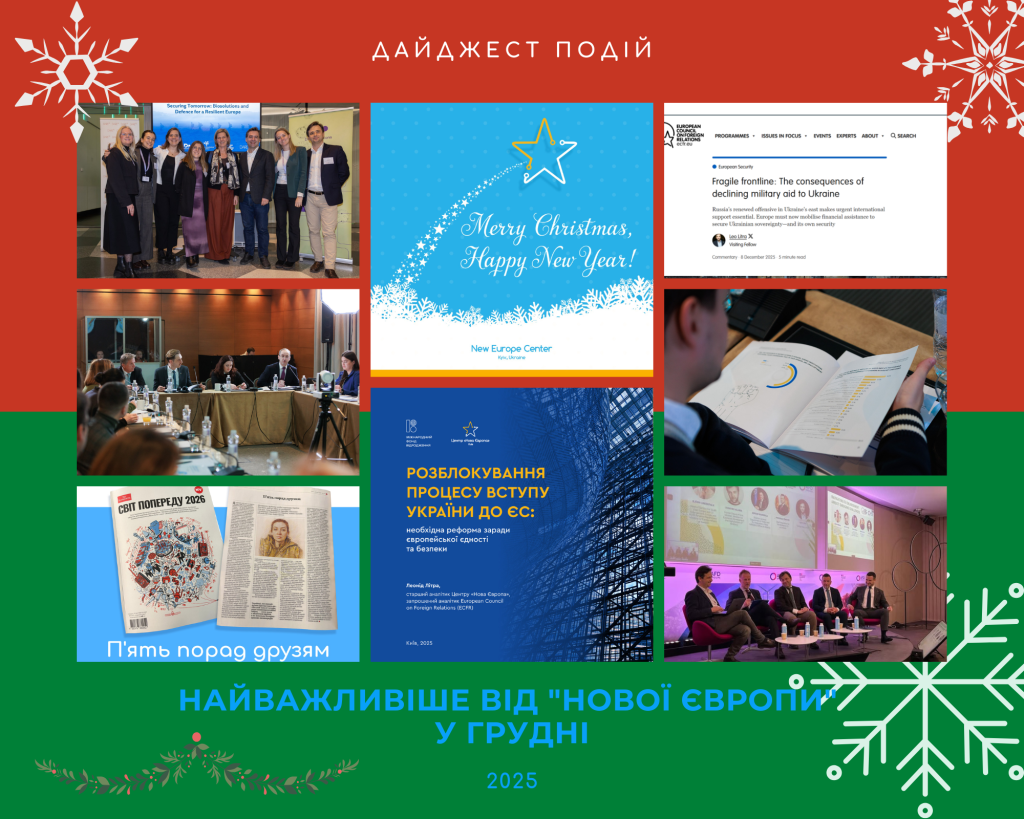The paper is written within the rubric “New Europe Wonders” .
Please find the PDF-version of the research here.
Ukrainian seasonal workers are demanded in Poland, Czech, Germany, Italy and the Baltic countries. Due to COVID-19 Ukraine restricted traveling regulations for labor migrants who are now forced to stay in the country and face employments issues. Meanwhile, the hosting countries experience lack of seasonal labour workers from Ukraine. How is Ukraine’s restriction policy perceived by other countries? How do these states deal with the lack of workers for agricultural activities? Our Center in terms of the traditional rubric “New Europe Wonders…” addressed the experts with the question “How will travel restrictions for Ukrainian seasonal workers affect Ukraine’s relations with other countries and their economies?”
Wojciech Konończuk, deputy director, Centre for Eastern Studies (OSW), Poland
Most of the Ukrainian migrants have remained in Poland. In a first month of the pandemic 175.000 of them returned to Ukraine, what means that app. 800.000 —1 million have still stayed on the local labour market. At the beginning of April, the Polish government adopted the new regulations allowing legal stay in the country for foreign migrants up to one month after the end of the COVID-19 crisis. It means that all foreigners’ residence cards and work permissions are being automatically extended, what is a very good and welcome decision. While discussing the situation of Ukrainians and other foreign migrants, we have to bear in mind that the pandemic will most likely have a strong influence on the Polish economy. The historically lowest unemployment rate (2.9 per cent in January 2020) will increase at least threefold in the next couple of months. It will hit both Polish and foreigners working in Poland. The recent polls say that 51 per cent of Ukrainians prefer to stay. However, the quick growth of unemployment rate will diminish the number of foreign migrants. Fewer jobs mean fewer jobs for all. But all depends on the scale of the unavoidable recession. Some consequences are already obvious for both Polish and Ukrainian economies. The pandemic undoubtedly will end the three-decade-long period of uninterrupted GDP growth in Poland. In case of Ukraine less migrants means lower remittances ($14 billion in 2018; one fifth of that amount is generated by the Ukrainians working in Poland).
Maria Piechowska & Maciej Zaniewicz, analysts on Ukraine, the Polish Institute of International Affairs (PISM), Poland
It is estimated that between one and two million Ukrainians work in Poland. Their presence is perceived positively, especially from the economic point of view – contribution of all migrants from Ukraine to the Polish GDP growth is about 11%. Seasonal workers constitute the majority of migrants from Ukraine working in Poland and most often find employment in agriculture and processing of vegetables and fruit. The coronavirus epidemic stopped this year’s arrival of seasonal workers from Ukraine. This is a challenge for Polish economy, which suffers from labour shortages, especially in agriculture. However, restrictions on seasonal workers will not affect bilateral relations. Foreigners’ temporary residence permits in Poland have been extended to 30 days after the end of the state of epidemic. This is to make it easier for workers to prolong their stay and encourage them to remain in Poland. The European Commission’s recommendation to exclude agricultural seasonal workers from the ban on entering the EU is also significant. However, much will depend on the development of the pandemic in Ukraine and Ukrainian authorities’ position on the matter.
David Stulik, Senior Analyst, European Values Center for Security Policy, Czech Republic
The travel restrictions for Ukrainian seasonal workers will have in general no direct impact on Czech-Ukrainian relations as such. Even at the level of media reporting there are hardly any news published that would be related to Ukraine. Maybe, with only one exception, which were the fires at the Chernobyl zone. However, the Czech economy, and in particular such sectors like agriculture or forestry, are already deeply affected by these restrictions due to start of the working season. Czech farmers are already in need of additional manual labour force, which is short these days. Usually, this deficit has been saturated with foreigners, the major bulk of them coming from Ukraine. There are already first reports that the harvest of some early-season products might be gone due to the fact that there are no people to collect it. The same situation can be observed in the forestry. Due to the recent droughts and the catastrophic spread all over the country of the bark beatle, huge volumes of wood need to be logged and utilized. Again, most of these works were to be conducted by Ukrainian forest workers, who are now lacking. As a result, the calamity deforestation can gain unforeseenable dimension.
Gwendolyn Sasse, Director of the Centre for East European and International Studies (ZOiS), Germany
Germany – like many EU countries – is facing a dilemma: its agricultural sector and food industry depend on an estimated 300,000 seasonal workers each year, mostly from Poland, Romania, Ukraine and Southeast Europe. It now has to square the restrictive measures aimed at containing COVID-19 with the need for large numbers of seasonal workers circulating in an out of the country during the harvest period. The EU Commission has called for keeping borders open for this vital workforce. After an initial ban on the movement of seasonal workers, the German government arrived at a compromise in early April. It now allows up to 40,000 seasonal workers per month into Germany on the basis of a long list of travel, accommodation and hygiene rules (many of which are proving impossible to enforce). The immediate impact of the policy on Ukrainian-German relations will be limited. Germany remains one of the most active EU countries when it comes to bilateral assistance to Ukraine. In the first instance, the restrictions on seasonal labor affect the workers and their families relying on the income and remittances. The re-integration of circular migrants and a large number of return migrants is bound to become one of Ukraine’s biggest socioeconomic challenges during an inevitable economic downturn.
The paper was written within the Think Tank Development Initiative for Ukraine (TTDI), carried out by the International Renaissance Foundation in partnership with the Think Tank Fund of the Open Society Initiative for Europe (OSIFE) with financial support of the Embassy of Sweden in Ukraine. The views and opinions expressed in this paper are those of the author and do not necessarily reflect the position of the Embassy of Sweden in Ukraine, the International Renaissance Foundation, and the Open Society Initiative for Europe (OSIFE)








